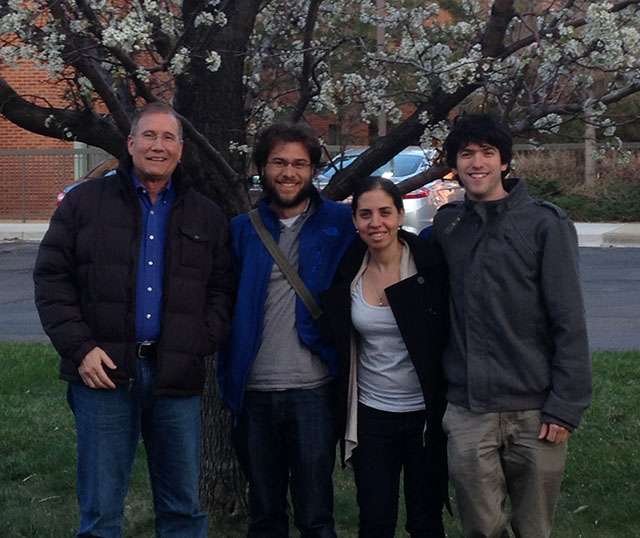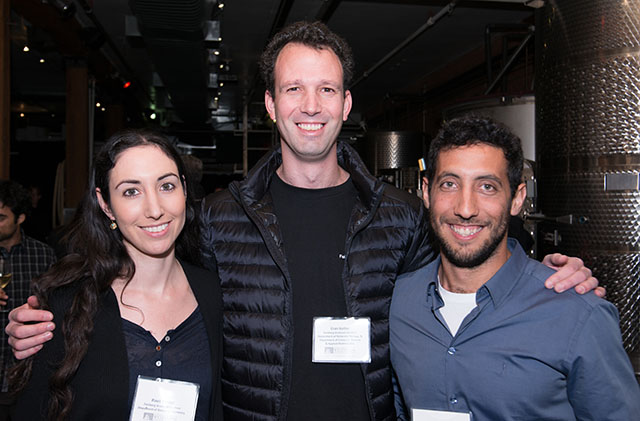Six outstanding students from the Institute’s Feinberg Graduate School (FGS) traveled across the Atlantic for the second U.S. “Scientists of Tomorrow” tour. Three students, accompanied by Feinberg’s Director and Academic Secretary Dr. Ami Shalit, visited Los Angeles, Las Vegas, Denver, Boulder, and Chicago. Three others, joined by Kelly Avidan, the Institute’s Director of Resource Development and Secretary of the Association, went to Florida and New York.
The students brought energy and enthusiasm as they discussed their work at breakfasts, luncheons, dinners, and “Science on Tap” events. They also helped kick off the American Committee’s NextGen initiative, aimed at engaging a younger cadre of Weizmann supporters. While their research subjects varied from cancer to biological clocks to the human brain, they shared a passion for science – and a desire to spread the spirit of discovery to the general public. In addition, they touched on their personal journeys, families, and diverse interests outside the lab, including long-distance running, beer brewing, and salsa dancing.

(L-R) Dr. Ami Shalit with Feinberg Graduate School students Gal Ofir, Liran Szlak, and Gideon Alon outside Twisted Pine Brewing Company in Boulder for "Science on Tap."
Each student expressed a sense of gratitude for the opportunity to study at the Weizmann Institute. As an undergraduate at the Hebrew University of Jerusalem, Ravit Netzer, Department of Biomolecular Sciences, “kept hearing that Weizmann is the best place to do science.” Now, as a PhD candidate, she gets to experience the Institute’s “special atmosphere” firsthand. “It’s very green, full of flowers, trees, and birds. All of us come to eat lunch [on the grass between buildings], and this is often where collaborations start,” she explained. “It’s just fun to come in the morning and meet these inspiring people.”
In addition to the Institute’s world-class professors and cutting-edge laboratories, the students said that what sets Weizmann apart is its emphasis on multidisciplinary research. For example, PhD candidate Eran Kotler works between two labs, one in the Department of Molecular Cell Biology, and one in the Department of Computer Science and Applied Mathematics. He is using tools from both disciplines to study p53, a gene that is found to be mutated in 50 percent of cancers. “It’s a great place to get these combinations going,” he said.

(L-R) Feinberg students Ravit Netzer, Eran Kotler, and Ziv Zwighaft at City Winery for New York City's "Science on Tap."
Beyond technical skills, these future science leaders have learned what it takes to pursue a career in which results do not come quickly or easily. “The quality that scientists need most is persistence,” said Ziv Zwighaft, Department of Biomolecular Sciences. “Things don’t always work out, but you have to keep pursuing your questions.”
Longtime and new American Committee friends enjoyed hearing from these young innovators who will drive tomorrow’s breakthroughs. Although the road to discovery may be not linear, the students have embraced the challenges that lie ahead, and are optimistic about the outcomes of their endeavors. With curiosity and patience, Eran Kotler commented, “Everything is possible.”
Learn more about the Scientists of Tomorrow.
